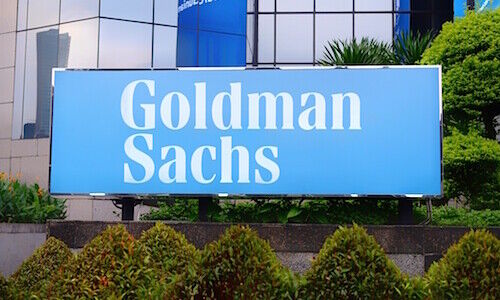Swiss Banks Sidelined From Fizzling Start for Chinese Stocks
Swiss banks are advising against market timing and recommending investors to sacrifice a potential early China rebound in order to avoid further downside from the ongoing crackdown. This position has paid off thus far after the weakest start for Chinese markets in three years.
This week, the Hang Seng Index and the CSI 300 – Hong Kong and mainland China’s equity benchmark – both registered their worst opening session of trading (both down 0.5 percent) since 2019.
This follows a recently published report by China International Capital Corporation (CICC) that said net inflows of northbound capital into Shanghai and Shenzhen-listed stocks reached a record of 417.5 billion yuan (US$65.5 billion) as of December 23, nearly doubling 2020’s level.
Betting on a Rebound
While some investors are betting early on a rebound, believing that markets have already priced in most economic headwinds, others are erring on the side of caution – most notably Swiss banks – preferring against timing the market while instead awaiting more regulatory clarity.
Of those contributing to Chinese inflows, U.S. banks and are investors amongst the most optimistic on Chinese markets.
Attractive Valuations?
Yesterday, Pierre Lau, Chinese equity strategist at Citi Research, forecasted that H-shares could see a rebound with the HSI climbing as much as 12 percent to reach 26,000 by the end of the first half and 28,000 by year-end, fuelled by the global economic recovery.
In a December 13 note, Goldman Sachs strategists led by Christian Mueller-Glissmann said that Chinese equities offered «attractive valuations and continue to be underinvested» while J.P. Morgan strategists upgraded the market one week earlier with expectations of a «major rebound in offshore Chinese equities» in 2022.
More recently, U.S. publishing and tech firm Daily Journal Corp – chaired by longtime Warren Buffet business partner Charlie Munger – nearly doubled its stake in Alibaba to 602,060 American depository shares as of December 31, according to an exchange filing yesterday, which now have a total value of around $72 million.
Swiss Caution – Timely Exit
In contrast, Swiss lenders have opted to demonstrate more caution in the near term – including large universal players, like Credit Suisse and UBS, as well as smaller pure-play private banks – upholding their mantra of avoiding market timing.
UBP, for example, made a «timely exit» from Chinese equity and bond holdings in the second quarter last year and have yet to make a meaningful return with Asia senior economist Carlos Casanova noting last month that «it remains potentially a little bit early to call the bottom for the market as a whole».
«It’s not yet the case for China,» added Pictet Wealth Management’s Asia chief investment officer Alexandre Tavazzi last month, underlining that 80 percent of client discussions are currently centered around the world’s second-largest economy. «We are still waiting for the revision of earnings to reach the bottom but it is definitely on our radar screen.»
Ongoing Crackdown
Meanwhile, China’s technology sector continues to face an ongoing regulatory crackdown.
Authorities have recently directed their attention to live streamers with a $210 million fine against top influencer Viya over tax evasion and proposed rules to ban such online celebrities from marketing financial products.
In addition, the country’s property crisis continues to deepen with China Evergrande now scheduled for an online meeting with some debtholders to delay the redemption date of a 4.5 billion yuan ($156.92 million) 6.98 percent bond from January 8 to July 8, shortly after its shares were suspended from trading in Hong Kong.




























